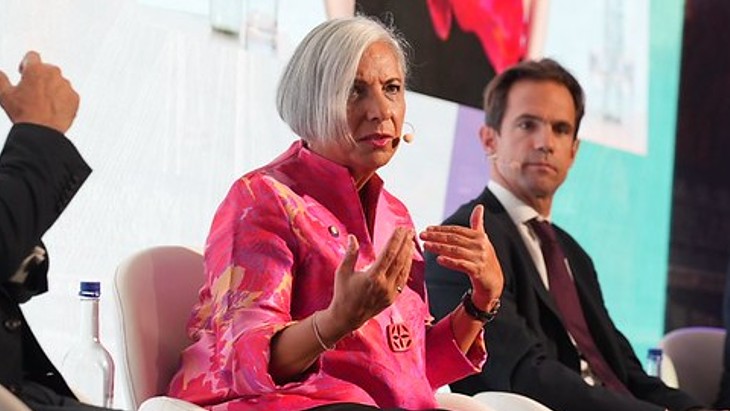Few of us got to where we are on our own. Over the course of my career, I have benefited immensely from mentors and champions who have helped my professional development and career progression. For most of us, and this was certainly the case with me, it was senior leaders within my own employer - Ontario Power Generation - which is the primary electricity generator in Canada’s largest province.
These mentors took an interest in my professional development, showed me the ropes, gave me feedback, and were my champions when it came time to advancing my own career.
But, although power tends to be generated at the domestic level, nuclear is a global industry: including global supply chains, global standards and best practices, global academic and technical expertise, and global regulatory scrutiny. This is why I have been so passionate about my involvement as a mentor and lecturer at World Nuclear University’s Summer Institute (WNU SI). I recognise the benefit of finding mentors in other countries to help accelerate one's professional development. I have been privileged to be a WNU lecturer in Spain in 2022, Japan in 2023 and a lecturer and mentor in Brazil in 2024.
I have mentored several hundred WNU SI Fellows from more than 30 countries. Most of these Fellows are mid-career professionals in nuclear companies around the world. The programme has given these Fellows an opportunity to accelerate their progress into future nuclear leaders: networking with other global professionals, as well as learning best practices from world experts and one another on leadership and various commercial, operational, regulatory, and strategic challenges.
It has given me the opportunity to connect with the best and brightest nuclear professionals from across the world; learning how the sector is developing and what its future holds; as well as paying back the benefits of mentorship which I received at earlier junctures in my career.
My lectures and one-on-one conversations have focused on strategic opportunities, as well as challenges, facing the nuclear sector. New technologies, the insatiable growth in demand for energy, the importance of social licence, regulatory and permitting approaches, how to have difficult conversations in the workplace, and the strategic positioning of the sector worldwide.
As always, I am always grateful to learn from so many future senior industry leaders on their different approaches to these sectoral issues. And I look forward to supporting all of the Fellows as their careers grow.
Having the privilege to attend the WNU SI is an opportunity of a lifetime for mid-career nuclear professionals. Whether it is the advanced lectures and discussions, networking with global colleagues, the opportunities for mentorship, or sharing best practices and different ways of working together - for those looking to become nuclear leaders, I cannot recommend this programme highly enough.
Looking ahead, I think the future is extremely bright for the nuclear sector. Partly this is driven by a desire to reduce greenhouse gas emissions. Partly this is driven by a recognition that the demand for electricity is likely to grow both for individuals and also for businesses - and nuclear will need to be an increasing part of that energy mix. Many countries that decommissioned nuclear plants are making the strategic decision to restart their operations. Countries and regions without historical nuclear sectors are making the decision to build new nuclear. Countries with advanced nuclear sectors are investing in new capacity and new technology.
As nuclear investments repay over multiple decades, anyone entering the sector today is assured many career opportunities through to retirement and beyond. I think the WNU’s Summer Institute programme is the perfect complement for those who recognise the benefits of a global network of nuclear experts, Fellows, and mentors as they chart their own individual path in this exciting and rapidly growing field.
* World Nuclear University is a not-for-profit organisation dedicated to advancing leadership in the nuclear sector, co-founded in 2003 by World Nuclear Association, World Association of Nuclear Operators, the International Atomic Energy Agency and the OECD Nuclear Energy Agency. Its next five-week Summer Insitute is due to be held in China in 2025.







_97013.jpg)
_51413.jpg)




